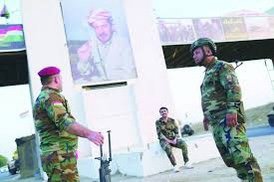The Kurdistan Democratic Party (KDP), the governing force in Iraqi Kurdistan, has declared its boycott of the region’s upcoming parliamentary elections, slated for June. This decision comes as a response to a recent ruling by Iraq’s Federal Supreme Court regarding the election law, announced on Monday.
The electoral landscape in Iraqi Kurdistan has been fraught with tensions and delays, primarily stemming from political disputes between the region’s two main parties and conflicts with Baghdad. Initially scheduled for June 10, the parliamentary elections faced repeated postponements, exacerbating existing political divides.
The Federal Supreme Court’s ruling, issued on February 21, played a pivotal role in the KDP’s decision to withdraw from the electoral process. The court reduced the number of parliamentary seats from 111 to 100 and mandated the Independent High Electoral Commission (IHEC) to oversee the elections, replacing a local governing body.
In an official statement, the KDP, which not only holds the regional government’s presidency but also commands a majority in the current parliament, cited constitutional concerns as the basis for its boycott. It refused to participate in elections perceived as unconstitutional and undemocratic, rejecting what it deemed an imposed electoral framework.
Criticism from the KDP focused on the Federal Supreme Court’s alleged constitutional transgressions against the Kurdistan region of Iraq. By abstaining from participation, the party aims to avoid lending legitimacy to what it perceives as a flawed electoral process.
The KDP’s withdrawal from the elections introduces further complexity to an already tumultuous electoral landscape. The region’s political arena is largely dominated by two major rival parties, the KDP and the Patriotic Union of Kurdistan (PUK). At present, the PUK has not yet disclosed its position on the upcoming local elections, leaving the political landscape in flux.
As Iraqi Kurdistan grapples with the ramifications of the KDP’s boycott, the region faces heightened uncertainty regarding the electoral process and its broader political future. With significant challenges ahead, the path to a stable and inclusive electoral framework remains elusive, underscoring the ongoing complexities within the region’s political landscape.

